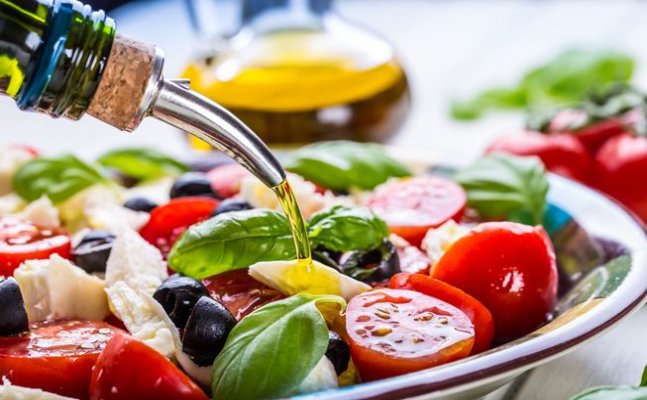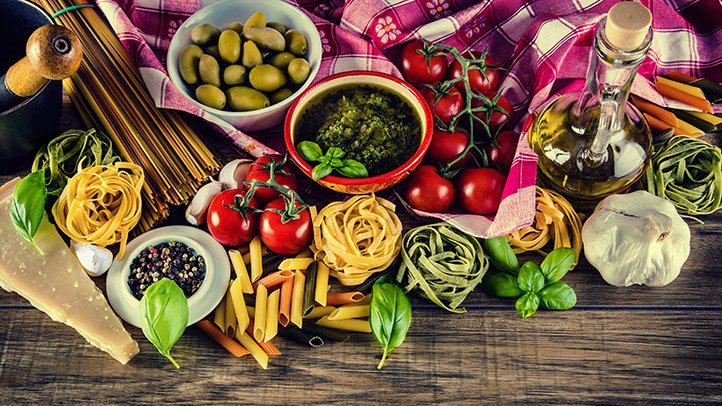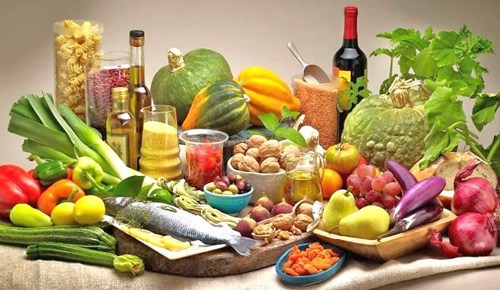Mediterranean Diet in Indian context for good muscle strength and cardio vascular health
- Shriparna
- Friday | 12th January, 2018

Rresearch done on a sample size of 1.5 million healthy adults demonstrated that following a Mediterranean diet was associated with a reduced risk of death from heart disease and cancer
Mediterranean diet has been much in limelight for some time after researchers found that it is the best for cardiovascular health. If you’re looking for a heart-healthy eating plan, the Mediterranean diet might be right for you. In fact, a research done on a sample size of 1.5 million healthy adults demonstrated that following a Mediterranean diet was associated with a reduced risk of death from heart disease and cancer, as well as a reduced incidence of Parkinson’s and Alzheimer’s diseases.

The best thing about the diet is it is never restrictive. Monounsaturated fat from olive oil and polyunsaturated fat from tuna or shellfish is a good thing. Although it emphasizes on a vegetarian diet, who can also switch over to non-veg diet. Drinking red wine in moderation (optional) is inspired. The diet also recognizes the importance of being physically active and enjoying meals with family and friends.
Here is how you can follow a Mediterranean diet in India.
India has a large percentage of the population surviving on a veg diet. The only hurdle is to escape from sugar, cooking oil. Eat your veggies and fruits and switch to whole grains. A variety of plant foods should make up the majority of your meals

The Mediterranean diet emphasizes:
Eat your veggies and fruits and switch to whole grains. Avoid using possessed food. Include veggies and fruits in every meal and eat them for snacks as well. Switch to whole-grain bread and cereal, and begin to eat more whole-grain rice and pasta products. Keep baby carrots, apples and bananas on hand for quick, satisfying snacks. Fruit salads are a wonderful way to eat a variety of healthy fruit.

Nuts and seeds are good sources of fibre, protein and healthy fats. Keep almonds, cashews, walnuts as a substitute to the regular samosa. Sesame seeds are a good source of fibres as a dip or spread of bread.
Try olive or canola oil as a healthy replacement for butter or margarine. Lightly drizzle it over vegetables or cook them in limited oil.
Spice it up with herbs. These make food tasty and can be used instead of salt.
Grill, bake or broil fish but dump fried or curried fish
Limit red meat to no more than a few times a month.
Substitute fish and poultry for red meat. When choosing red meat, make sure it`s lean and keep portions small.
Also avoid sausage, bacon and other high-fat, processed meats.
Choose toned milk or low-fat dairy products, avoid cheese. Switch to skim milk, fat-free yoghurt and low-fat cheese.
Sample Mediterranean Menu
Ideal calorie intake, 1500 kcal; 20 percent of total fat; 55 percent carbohydrates; 5 percent of saturated fat 30 g fibre; 18 percent; protein; 1500 mg sodium; 500 mg calcium
Meal timing

Breakfast: Whole grain toast with fresh fruit yoghurt. Occasionally use a teaspoon of yoghurt.
Mid-morning snack: 1/4 cup assorted nuts and dried fruits
Lunch: Vegetable sprouts salad - 1 cup, brown rice vegetable pulao -1 cup, raita with cucumber and mint, grilled fish - 100 g, orange - 1 medium.
Evening snack: Lemon sorbet, a small bunch of grapes.
Dinner: Spinach-baby corn- cottage cheese salad, whole wheat roti – 2, red kidney beans curry, curd
Watermelon - 1 cup

If You Like This Story, Support NYOOOZ
Your support to NYOOOZ will help us to continue create and publish news for and from smaller cities, which also need equal voice as much as citizens living in bigger cities have through mainstream media organizations.


.png)
1.png)
.png)
.png)





